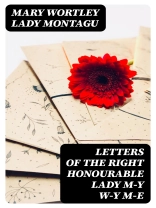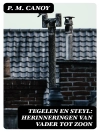In ‘Letters of the Right Honourable Lady M—y W—y M—e, ‘ Mary Wortley Lady Montagu offers a remarkable glimpse into the early 18th century, blending personal narrative with sharp social critique. Composed in the epistolary style, these letters reveal her experiences and observations during her travels in Turkey, presenting insights into Eastern customs, politics, and gender dynamics. Montagu’s fluid prose and keen wit illuminate both the cultural contrasts and connections between the West and the Ottoman Empire, making this work a significant literary and historical document of its time. Lady Montagu, a pioneering figure in women’s writing, was a poet, letter writer, and advocate for smallpox inoculation—a radical practice she introduced to Britain after observing it in Turkey. Her privileged position as a diplomat’s wife empowered her to transcend the conventions typically placed upon women of her era. Her letters not only reflect her intellect and curiosity but also highlight the challenges faced by women in early 18th-century society, revealing her unique perspective shaped by personal experience and extensive travel. I highly recommend this collection to readers interested in an authentic portrayal of cross-cultural experiences through the lens of a female writer. Montagu’s incisive observations and engaging style not only entertain but also challenge contemporary notions of gender and identity, making it a relevant read for anyone exploring women’s historical contributions to literature.
A propos de l’auteur
Lady Mary Wortley Montagu (1689–1762) stands out as one of the most prominent literary figures and aristocratic women of the eighteenth century. Her place in literary history is largely due to her epistolary work, ‘Letters of the Right Honourable Lady M—y W—y M—e’. Montagu’s letters offer invaluable insight into the society, politics, and the dynamics of gender during her time, exhibiting both biting wit and sharp observations. Her writing style combined the informal ease of the personal letter with a sophistication that appealed to the sensibilities of her contemporaries and later literary critics. As an intellectual and a feminist avant la lettre, she broke through the constraints imposed on women writers of her period, both through her travel writings about the Ottoman Empire and her advocacy for smallpox inoculation, a practice she observed in Turkey and introduced to Britain. Montagu’s influence extends to travel literature, cultural criticism, and the epistolary genre, with her letters being celebrated for their lively prose, keen intelligence, and the boldness with which she tackled contemporary issues. Her work not only offers a vital record of early eighteenth-century European society but functions as a timeless expression of a fiercely independent woman who embraced her intellectual and cultural curiosities.












